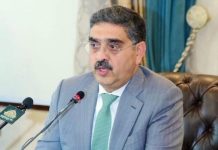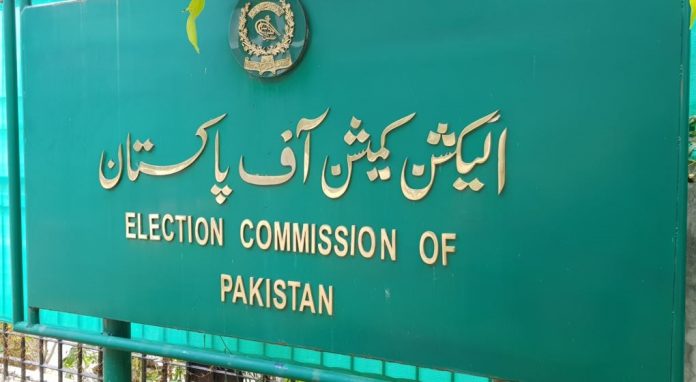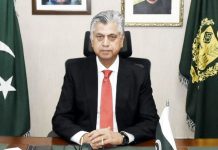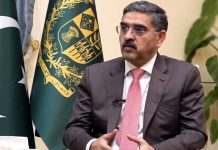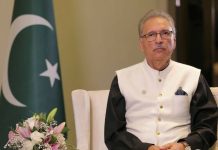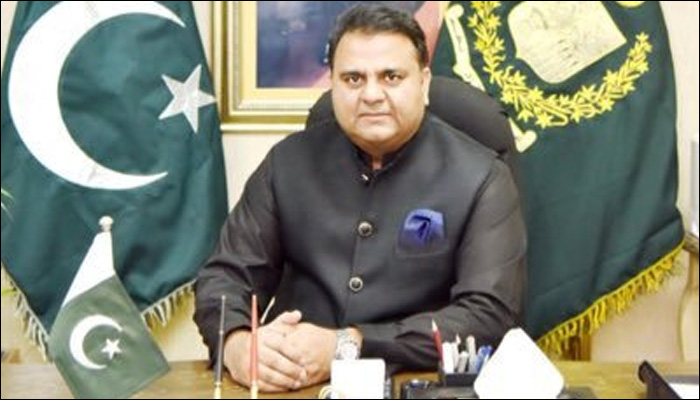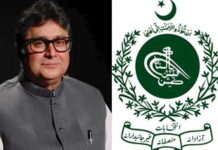WASHINGTON: Pakistan’s Finance Minister Asad Umar is expected to arrive this week at spring meetings of the World Bank group, which includes the International Monetary Fund. It is expected that along the sidelines of this event, Mr. Umar will discuss the terms and conditions of the IMF bailout package.
At a news briefing in Islamabad, on Friday, Mr. Umar said that he hoped his discussions in Washington would be fruitful and Pakistan would be able to sign the bailout package by the end of this month.
He is expected in Washington on Tuesday, a day after the spring meetings (April 8-14) formally begin. An IMF mission will visit Islamabad at the end of this month to formally conclude the package.
However, the Indian lobby in Washington has already launched a campaign to block the expected IMF assistance for Pakistan. On Friday, three congressmen — Ted S. Yoho, Ami Bera and George Holding — sent a letter to US secretaries of State and Treasury, in an attempt to make IMF deny the bailout deal with Pakistan.
They argued that the latter will use the package to repay China for the loans incurred under the China-Pakistan Economic Corridor (CPEC) programme. Two of these lawmakers — Mr. Bera and Mr. Holding — are co-chairs of the Indian caucus in Congress.
Indian lobby in Washington working on its malicious design to prevent IMF bailout package for Pakistan
In October 2018, Pakistan formally requested the IMF for a financial assistance package, backing it up with a series of meetings with senior IMF officials.
Pakistan’s endless financial issues — immense deficits, reducing forex reserves, trade deficit, weak tax net, a plummeting currency, external debt payments, and soaring sovereign debt — have resulted in yet another IMF bailout in last thirty years.
Steps such as currency devaluations, loans from Saudi Arabia, UAE and China and the issuance Pakistan bonds – have failed to cushion the economic setback as well as achieve the desired outcome of not approaching the IMF.
In February, IMF Managing Director Christine Lagarde met Prime Minister Imran Khan in Dubai. While she agreed that “the IMF stands ready to support Pakistan,” her emphasis was on the need for “decisive policies and a strong package of economic reforms” as well.
Later, a senior Pakistani official told media that the conditions associated with a loan could “include some harsh measures and the government will have to be very prepared to explain why Pakistan has been forced to return to the IMF”.
On March 27, the finance minister met the new IMF mission chief for Pakistan, Ernesto Ramirez Rigo, in Islamabad and discussed fiscal, monetary, and structural reforms with him.
Mr. Umar assured Mr. Ramirez that “the government would continue to address the macroeconomic imbalances and would take necessary corrective measures in this regard”, according to an official statement issued post meeting.
This week, the Asian Development Bank (ADB) projected further deceleration of Pakistan’s GDP growth to 3.9 percent and rising inflation pressures on average at 7.5 percent for the ongoing financial year.
The ADB’s Asian Development Outlook (ADO) 2019 also noted that Pakistan was discussing a macroeconomic stabilization programme with the IMF to meet its large financing needs.




